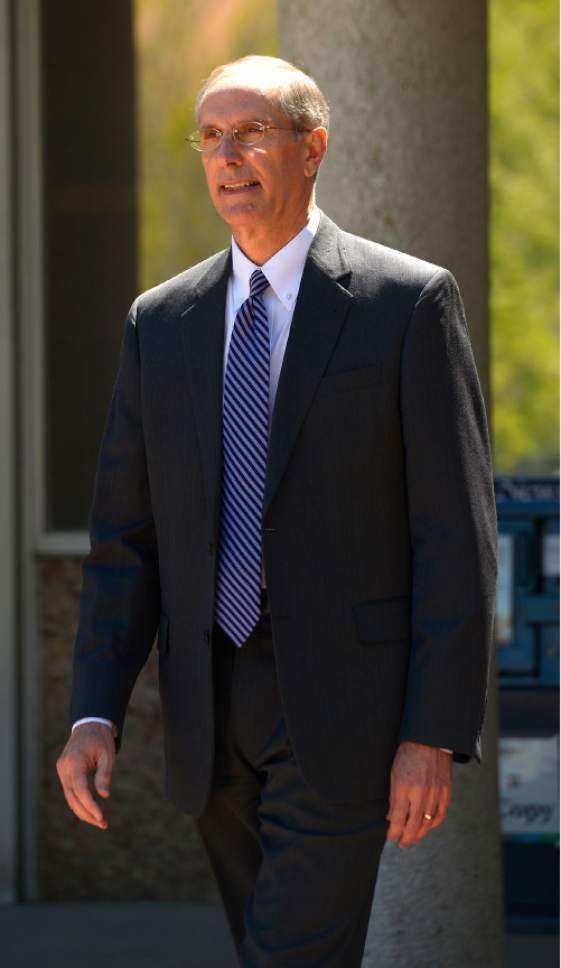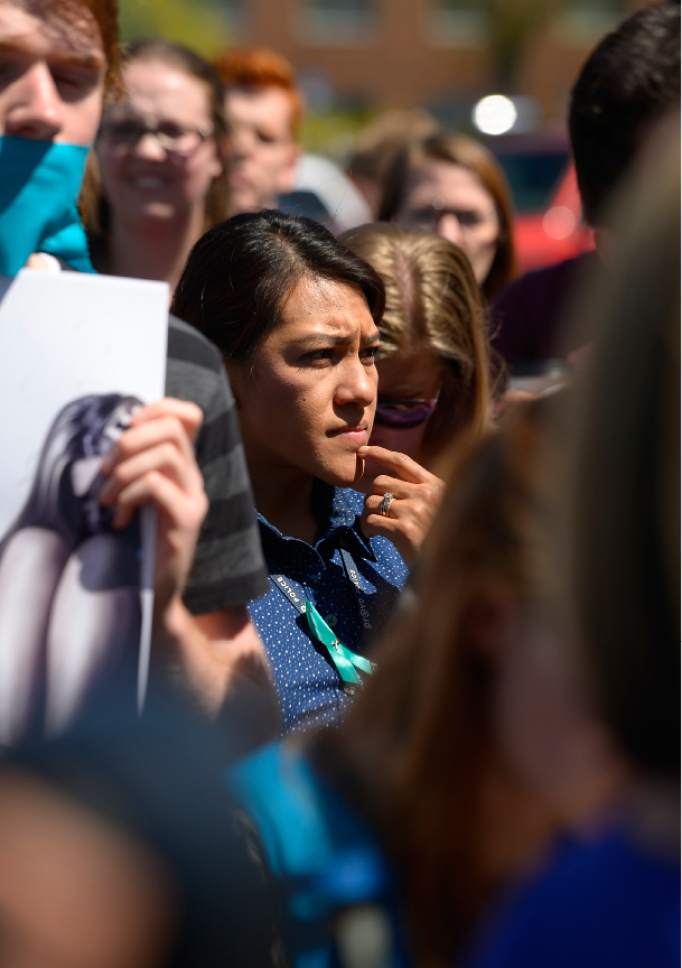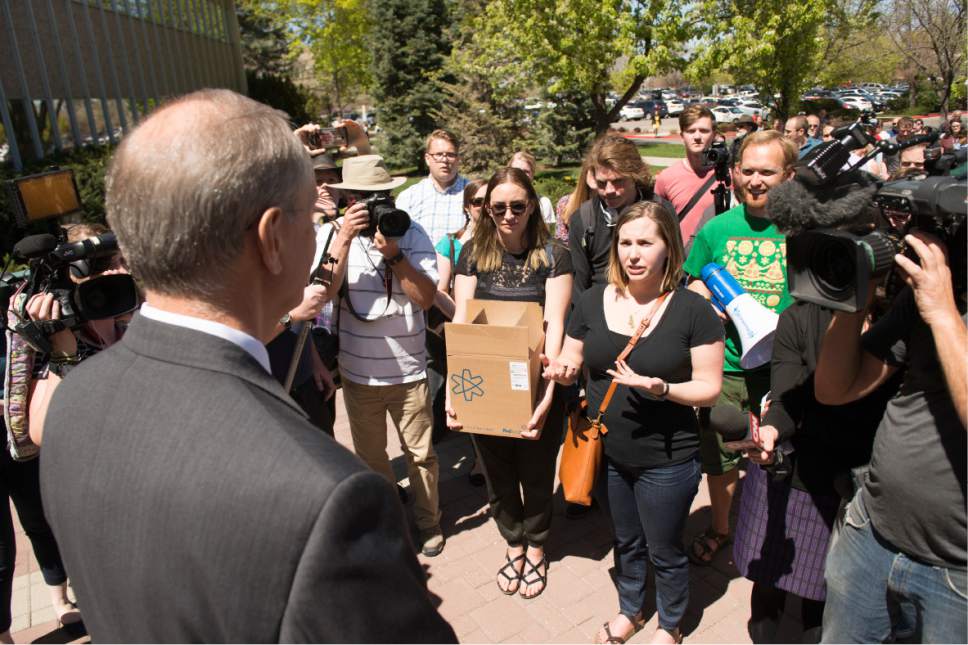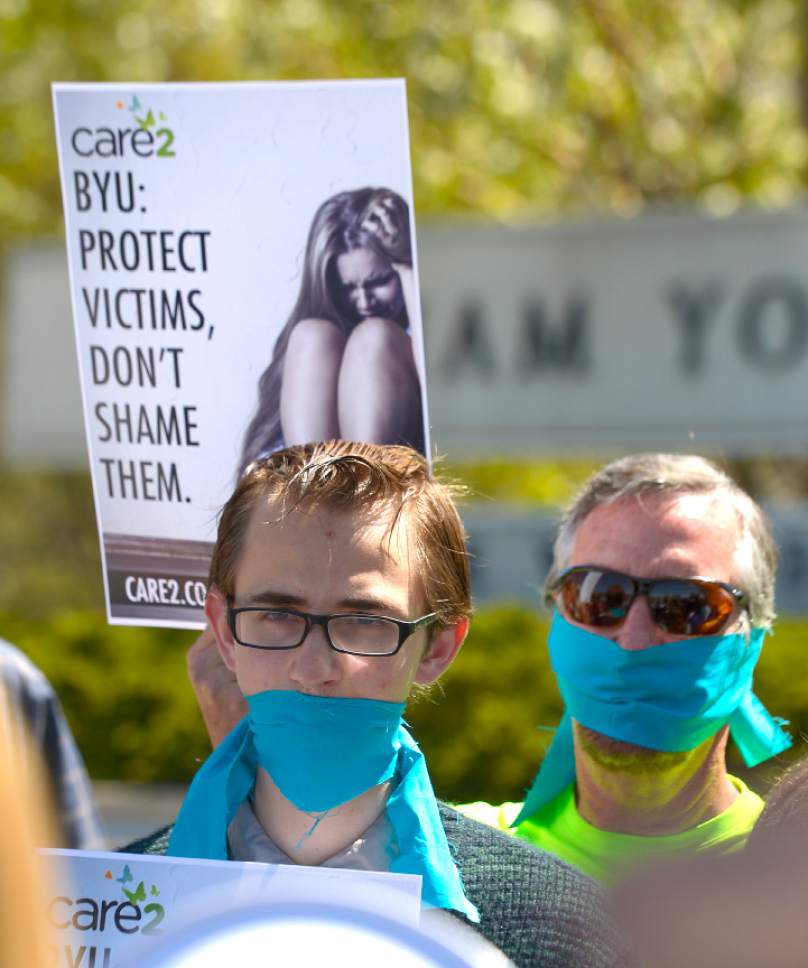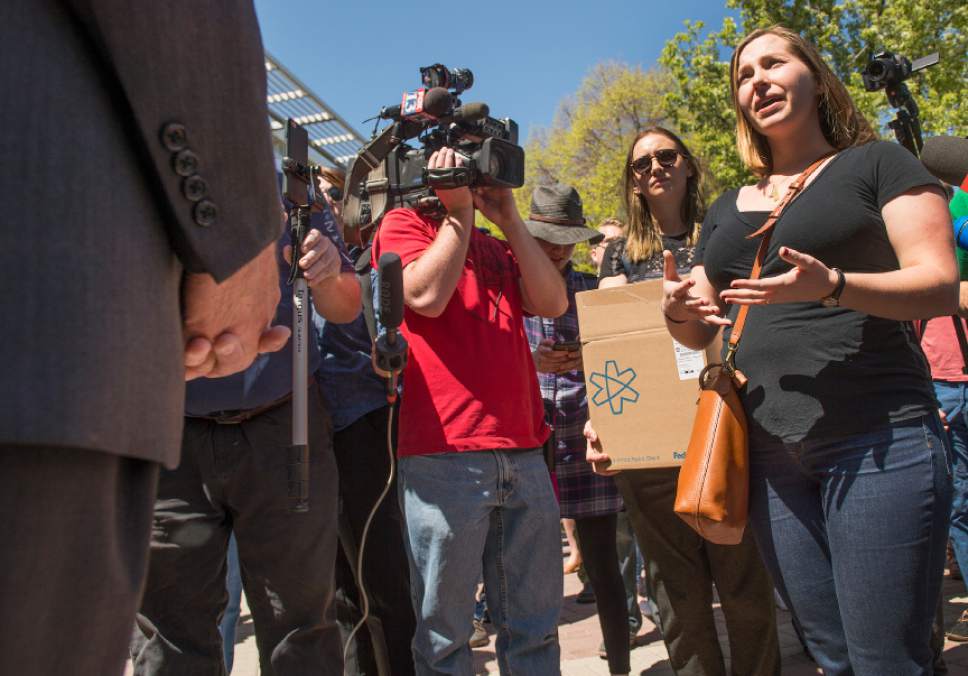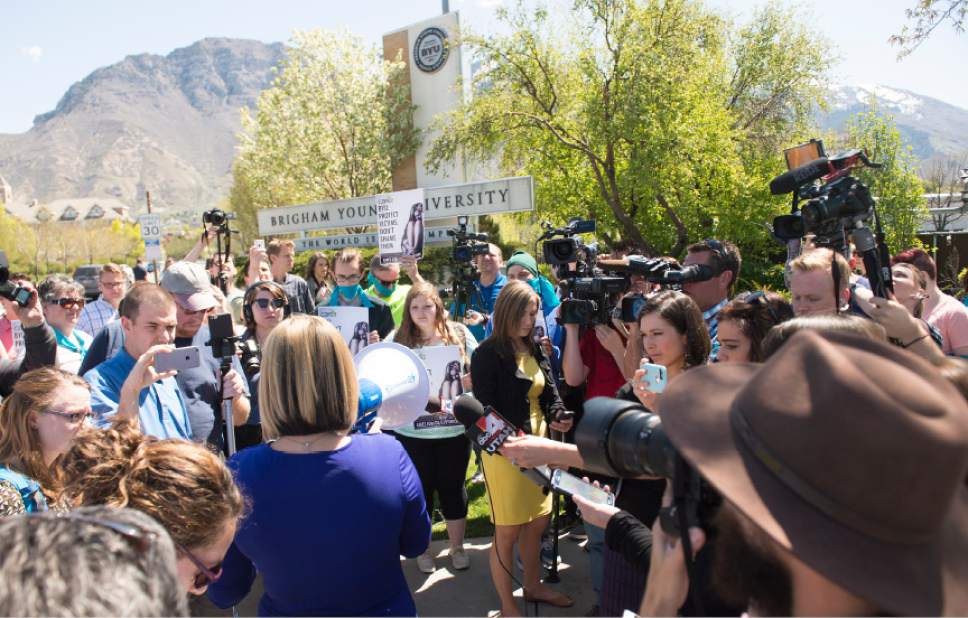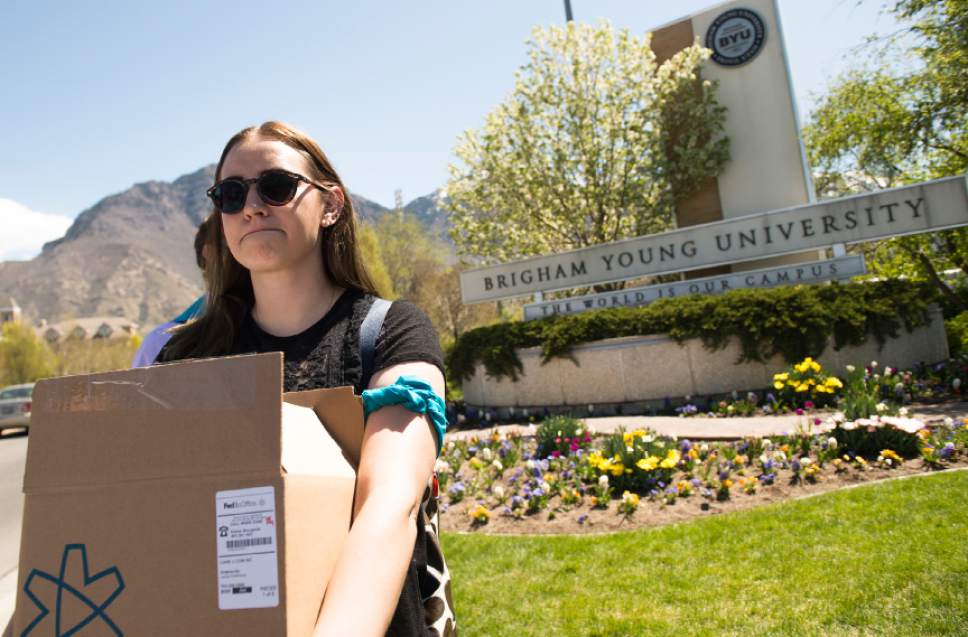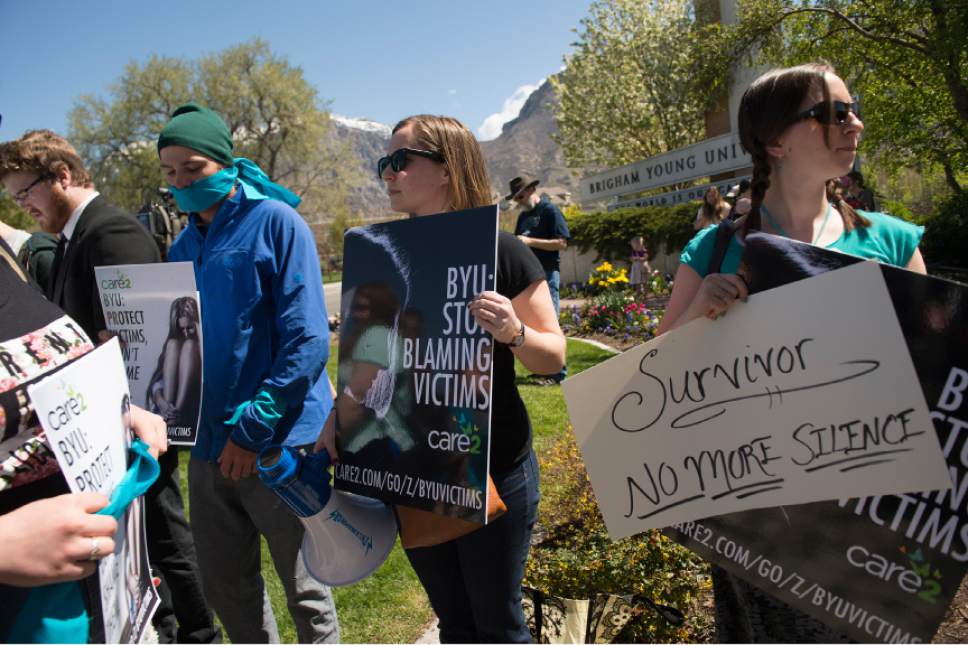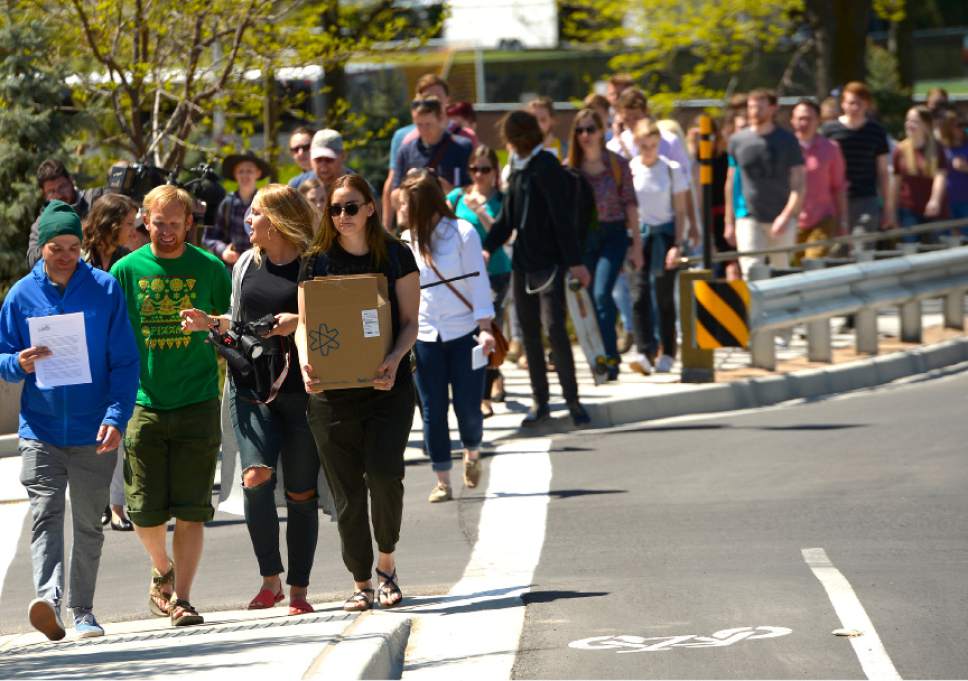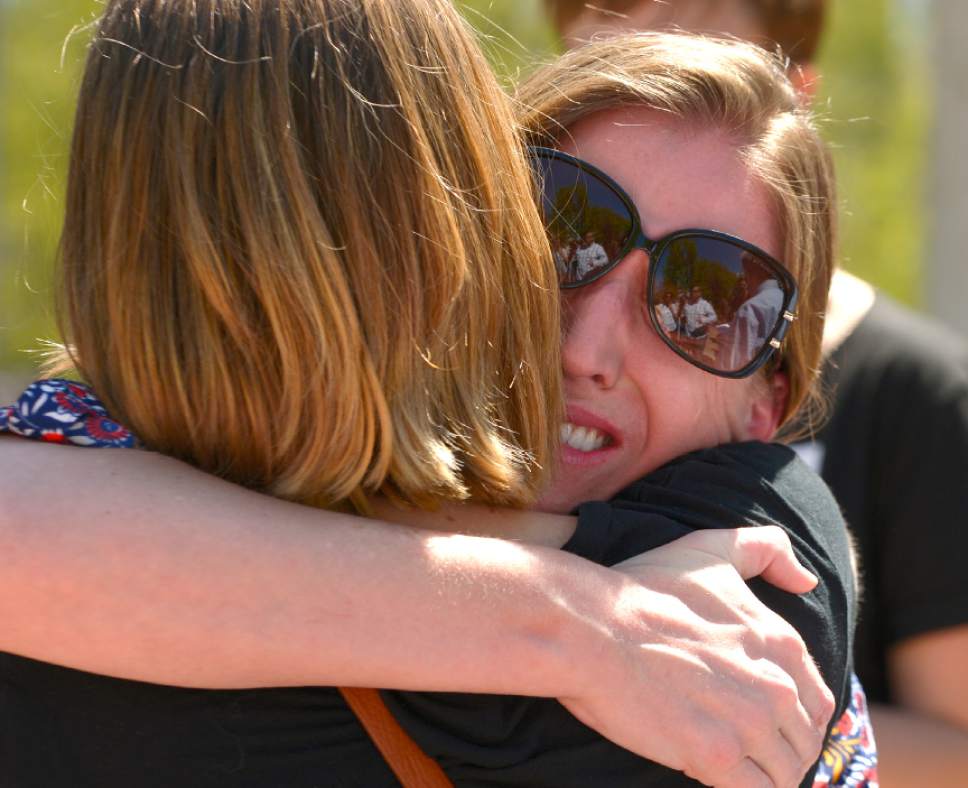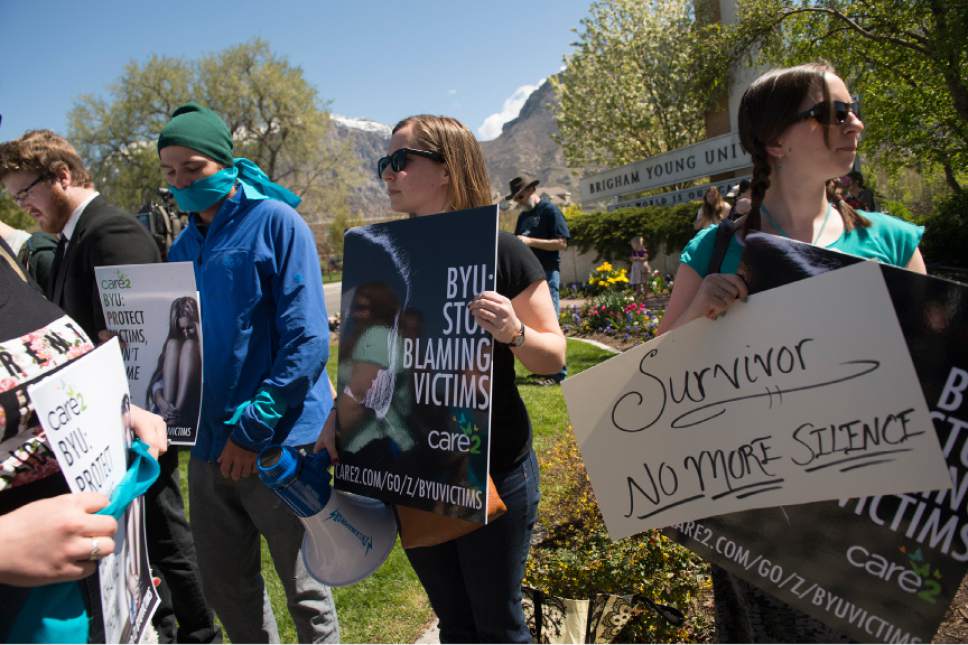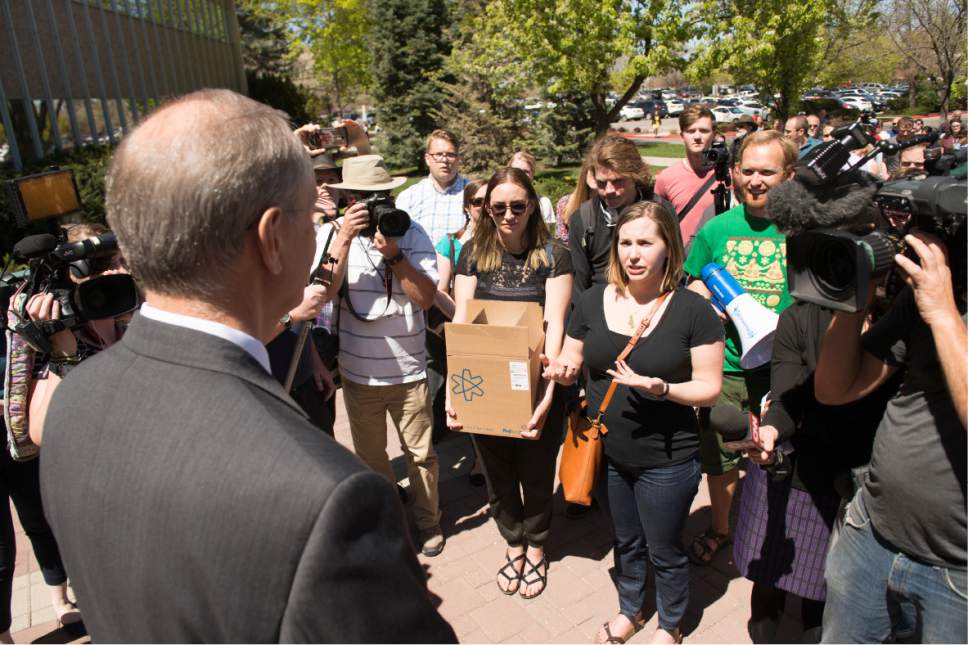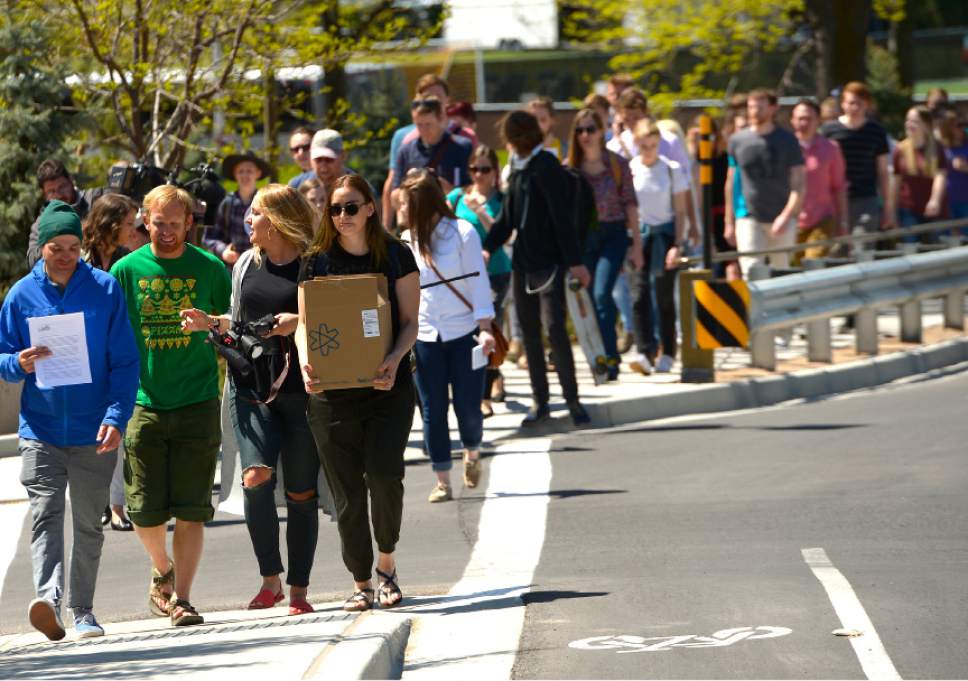This is an archived article that was published on sltrib.com in 2016, and information in the article may be outdated. It is provided only for personal research purposes and may not be reprinted.
Provo • Brittyn Coleman stood somberly in front of the welcome sign at Brigham Young University's campus Wednesday, a teal armband — the symbol of sexual violence prevention — tied around her mouth.
The gesture seemed appropriate, Coleman said, because she kept silent about being raped by a BYU student when she was in high school about six years ago.
Now 22, Coleman said she will remain silent no longer.
"It's important that people know they're not the only ones," Coleman said. "For a long time, I thought I was the only one."
Katina Parker-Phillpotts said she was sexually assaulted in 1993 while attending BYU. The attack happened on a hill above campus that became known colloquially as "rape hill," she said, because so many attacks happened there.
She never reported the attack. A friend who was sexually assaulted around that time was expelled from the private school after an Honor Code review, Parker-Phillpotts said.
Coleman and Parker-Phillpotts were among 40 protesters unhappy Wednesday with the Provo school's handling of sexual assault cases.
Some joined Coleman wearing armbands, while others held signs that read "end rape culture" and "BYU: Protect victims, don't shame them."
The protesters walked onto campus to deliver a petition with the signatures of more than 90,000 people who say the school should amend its Honor Code policies with an amnesty clause protecting victims of sexual assault.
President Kevin Worthen was not available, but Academic Vice President Brent Webb said he would make sure he saw it.
"We welcome you here, and we thank you for your concern," Webb said.
BYU this week said it is considering changes and will review the relationship between its Title IX department — federally charged with ensuring students don't face sex discrimination — and its Honor Code Office.
In a video statement released earlier Wednesday, Worthen described what he hopes that process yields.
"I hope we have a system that people feel they can trust, particularly again the victims of sexual assault. And that we have one that creates an environment in which we minimize the number of sexual assaults."
The online petition was started last week by Madi Barney, who said the private school launched an Honor Code investigation into her conduct after acquiring records related to her sexual assault, which she reported to Provo police.
BYU's Honor Code forbids students from drinking, using drugs, wearing form-fitting clothing or engaging in premarital sex. Students who do not meet the conduct standards may be expelled from school.
Before leading the walk onto campus, organizer Kelsey Bourgeois, with online petition site Care2, asked who in the crowd has experienced victim-shaming or blaming. About 20 people raised their hands — including Coleman.
Coleman, who is from Provo, was 16 when, she said, a blind date with a BYU student got out of hand. She never went to police for fear her parents would find out.
She believes the Honor Code should be revised because it is "very accusatory and very shaming to victims."
The Salt Lake Tribune generally does not name the victims of sex crimes, but the women in this story have given their permission.
Bourgeois, who now lives in Illinois, said she, too, was raped while attending BYU. She didn't report it to police or to the school for fear of the kind of problems Barney and other students say they've faced.
Not all protesters were victims.
Daniel Heninger came from West Jordan to show support. The 21-year-old is preparing to serve a mission for The Church of Jesus Christ of Latter-day Saints, which owns BYU.
"I want them to create an immunity clause," he said. The policy now "makes it more convenient for rapists."
He hadn't planned to attend BYU after his mission, he said, and the current policy would further discourage him if it doesn't change.
The policy is "not reflective of the world we live in," said Dominic Shaw, a BYU sophomore. His sister will be attending BYU, he said, and he couldn't help but wonder what would happen to her "if she found herself in the same position" as the women who've said they were assaulted and then revictimized by Honor Code investigations.
In speaking to protesters, Brooke Swallow-Fenton pointed to nearby Utah Valley University's code of conduct, which contains an amnesty clause. She hopes BYU will follow suit.
Those who've been sexually assaulted don't need the added concern of a looming Honor Code investigation, she said. "They're already worried about ... something that's going to affect them for the rest of their lives."
Provo resident and BYU alumna Lizzy Smith said she came to support victims. While she was attending the school about 20 years ago, she said, a friend and fellow student was assaulted, but didn't tell anyone because she was afraid it might prompt an Honor Code review.
Smith said her friend told her, "Who would have believed me?"
That friend was proud to hear that Smith was protesting today, Smith said.
Bourgeois spoke to protesters outside the administration office after delivering the signatures. Several BYU employees came out to listen but would not give their names.
Smith asked Bourgeois why they aren't calling for the resignation of the school's Title IX officer, who spoke at a BYU meeting two weeks ago and defended the school's Honor Code, according to students in attendance.
"Should we start a separate petition?" Bourgeois asked. "Let's do it."
She said she was dismayed by the comments of the Title IX officer, Sarah Westerberg. It shouldn't matter if assault victims were out past curfew or drinking, Bourgeois said.
BYU on Monday said it will review the relationship between its Title IX department — federally charged with ensuring students don't face sex discrimination — and its Honor Code Office.
Twitter: @alexdstuckey, @matthew_piper The Honor Code and sexual assault at BYU
Tell the Tribune: Have you or someone you know experienced a sexual assault at BYU?
April 15 • Deputy Utah County Attorney Craig Johnson says BYU jeopardizes a pending rape prosecution because the Honor Code Office — after obtaining the police file from a Utah County sheriff's deputy who knew the suspect — refuses to delay its own case against the alleged victim.
April 18 • BYU said its Title IX investigators, charged with protecting students from sex discrimination, sometimes refer sexual assault victims to the Honor Code Office for investigation of their conduct, and announces that it will review "potential structural changes" in light of public concern.


